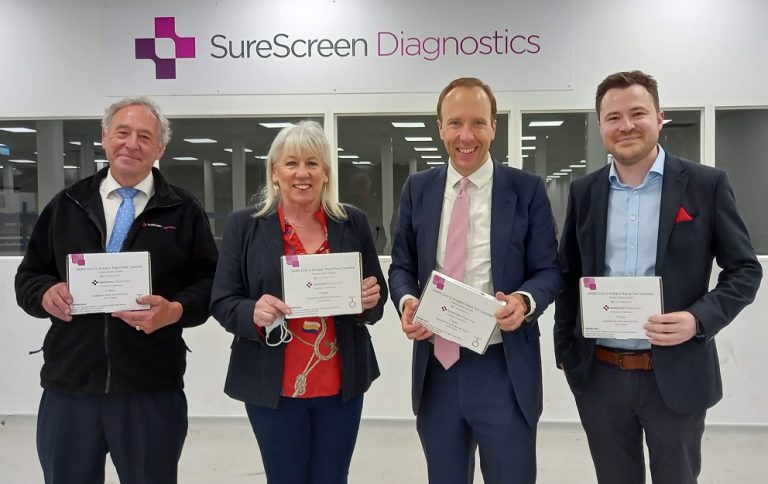Nottinghamshire van rental company secures six figure funding to support expansion
New commercial manager for Enrok Construction
SureScreen Diagnostics gives Matt Hancock a glimpse of the future as lateral flow tests get set for the mainstream
Monthly business insolvencies rise by a third
“Positive momentum” continues at Pendragon
The business’s Motor Division reported an £8.2m increase in operating profit, up from £12.2m in Q1 FY21 to £20.4m in Q1 FY22.
The firm noted that new vehicle supply remained below demand during Q1, and as a result continued to focus on maximising the level of margins achieved per unit. As a result, new gross profit per unit (GPU) at £2,456 was £975 higher than Q1 FY21, more than offsetting volume shortfalls, resulting in new gross profit up 35.4% on a like-for-like basis compared to FY21.
Used vehicles volumes were down 6.7% on a like-for-like basis as supply constraints from lower new car production since 2020 impacted on availability. Used GPU gradually softened during Q1 from levels seen in H2 FY21, but remained higher than Q1 FY21 at £1,767 (Q1 FY21: £1,095). Pendragon said: “The progress previously outlined in respect of our strategy implementation together with group sourcing advantages have helped to underpin this ongoing strong margin performance, which offset volume shortfalls, resulting in used gross profit growth of 47.4% on a like-for-like basis.”
Aftersales revenue and profitability meanwhile grew in the period, while the group’s software business, Pinewood, delivered an operating profit of £2.8m, down from £3.4m in Q1 FY21. Pendragon said this was in line with expectations, driven by increased costs, reflecting investment in resource to support product development and international expansion, together with a return to a more normal level of international travel.
The group’s leasing business, Pendragon Vehicle Management (PVM), recorded growth in operating profit.
Bill Berman, Chief Executive of Pendragon PLC, said: “The positive momentum in the business has continued into the first quarter of this year and I am very pleased with how we have performed.
“The benefits of the work we have done in the past two years to improve our operations, from vehicle sourcing through to online and in store sales practices is evident in our strong trading performance and we have seen good contributions from all parts of the group.
“While we are mindful of the pressures facing our market and our customers, we are confident in our strategy and focused on continuing to deliver profitable growth over the medium term.”












